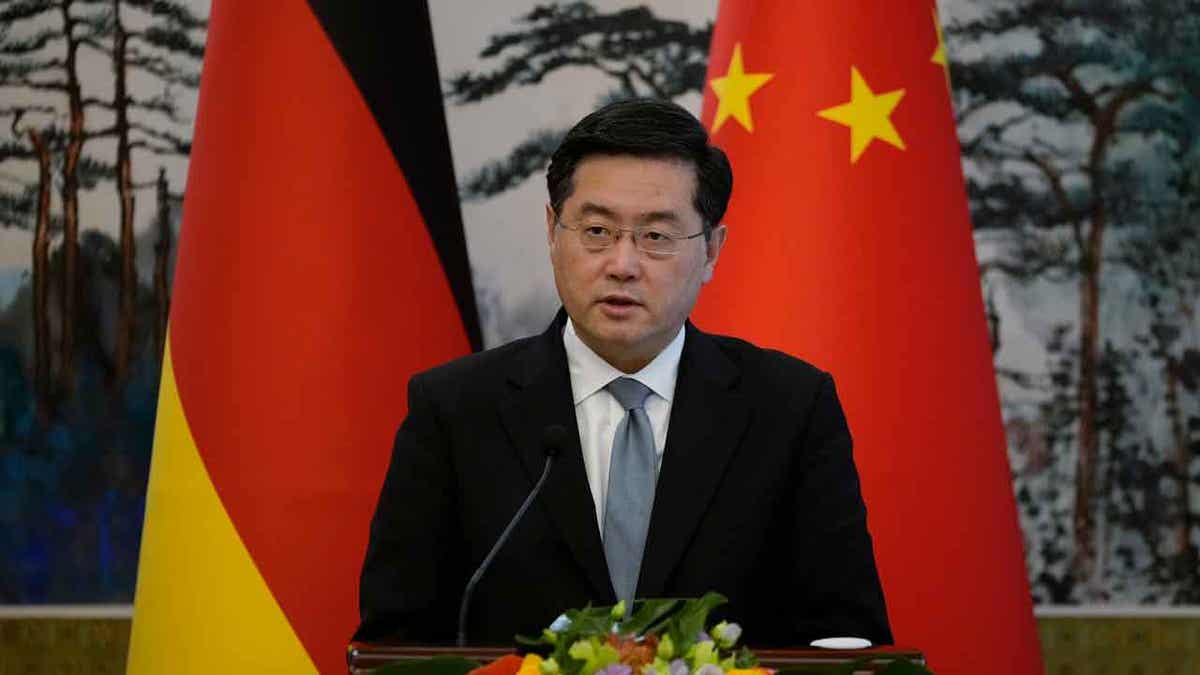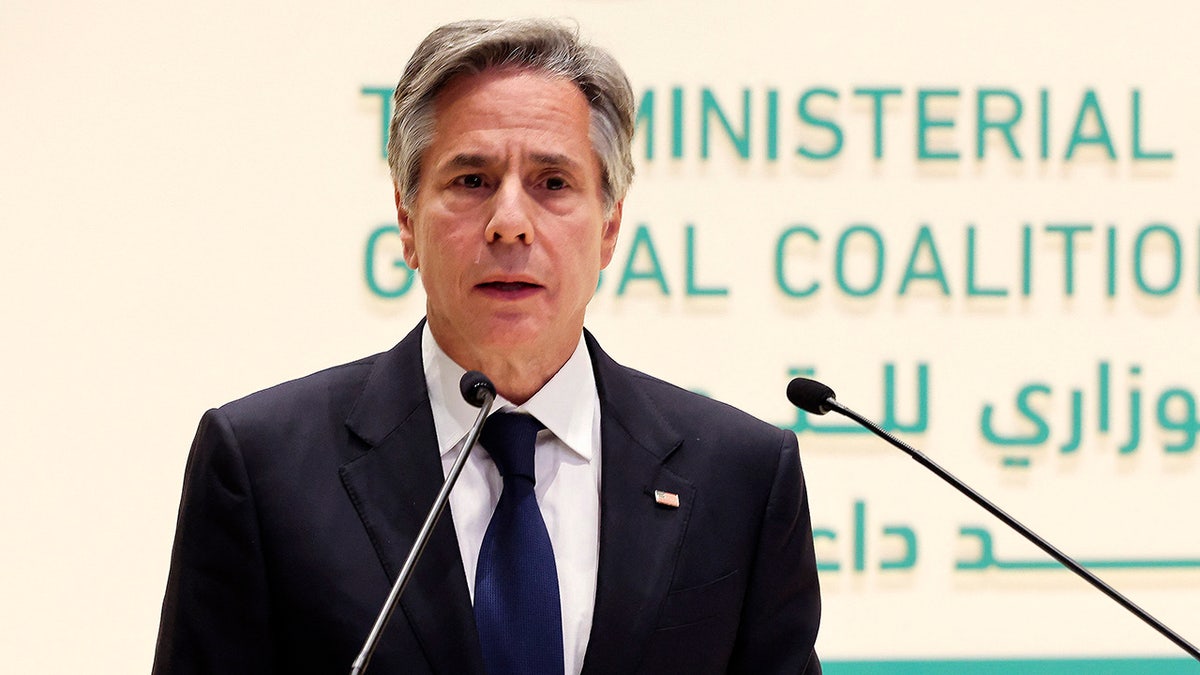Michael Pillsbury: Being tough on China would eliminate Biden crime family allegations
Heritage Foundation senior fellow Michael Pillsbury examines U.S.-China relations and the growing threat the CCP poses on 'Fox News @ Night.'
Secretary of State Antony Blinken will visit China this weekend, the State Department confirmed, after a tense Tuesday phone call where the communist nation's foreign minister told the U.S. to "stop interfering" in its affairs.
Blinken spoke with Chinese Foreign Minister Qin Gang over the phone on Tuesday as the secretary begins preparations for his trip to Beijing on June 18. The visit was postponed after a Chinese spycraft flew over the U.S., and he will be the highest-level Biden official to travel there.
"Spoke tonight with PRC State Councilor and Foreign Minister Qin Gang by phone," Blinken’s official Twitter account read. "Discussed ongoing efforts to maintain open channels of communication as well as bilateral and global issues."

Chinese Foreign Minister Qin Gang speaks during a joint press conference with German Foreign Minister Annalena Baerbock at the Diaoyutai State Guesthouse in Beijing. (Suo Takekuma/Pool Photo via AP)
According to Chinese foreign ministry readouts of the exchange, tensions were high as Qin told Blinken to keep out of the Asian mainland country's business.
"Since the beginning of the year, Sino-U.S. relations have encountered new difficulties and challenges, and the responsibility is clear," Qin said, according to the Chinese government's summary of the call.
The U.S. and China have clashed on multiple global issues in the last year, ranging from trade agreements to the sovereignty of Taiwan.
"I hope that the U.S. side will take practical actions to implement the important consensus of the meeting between the two heads of state in Bali, move in the same direction as the Chinese side, effectively manage differences, promote exchanges and cooperation, and promote the stabilization of China-US relations," Qin said, according to the South China Morning Post.
SENATE URGED TO PUNISH US COMPANIES THAT HELP CHINA BUILD ITS AI-DRIVEN 'SURVEILLANCE STATE'

Secretary of State Antony Blinken gives a joint press conference with the Saudi foreign minister after a ministerial meeting of the Global Coalition to Defeat the Islamic State in Riyadh. (AHMED YOSRI/POOL/AFP via Getty Images)
Administration officials confirmed on Sunday that China is working to ramp up its spying capabilities in Cuba. China has maintained a spy base on the island, which is 90 miles off of South Florida, since at least 2019, officials have said.
Qin reportedly told Blinken to "show respect, stop interfering in China's internal affairs, and stop harming China's sovereignty, security and development interests in the name of competition."
The State Department's communiqué about the phone call struck a more neutral tone, stating that the two officials discussed the importance of communication to avoid unnecessary conflict.
"The Secretary discussed the importance of maintaining open lines of communication to responsibly manage the U.S.-PRC relationship to avoid miscalculation and conflict, addressed a range of bilateral and global issues, and made clear the U.S. would continue to use diplomatic engagements to raise areas of concern as well as areas of potential cooperation," said State Department spokesman Matthew Miller.
A bipartisan effort in the Senate is underway to ban China and other hostile countries from manufacturing any American taxpayer-funded technologies.
CLICK HERE TO GET THE FOX NEWS APP
On Tuesday, Sens. Tammy Baldwin, D-Wis., and JD Vance, R-Ohio, will introduce the Invent Here, Make Here Act of 2023 that will require all federal agencies that commercialize taxpayer-funded research to invent 'new products to license only to American manufacturers.
While current law requires federally-funded inventions to be manufactured in the United States, the senators say this requirement is often waived, allowing cutting-edge, taxpayer-funded technologies to be licensed to foreign companies and manufactured in countries like China.









































